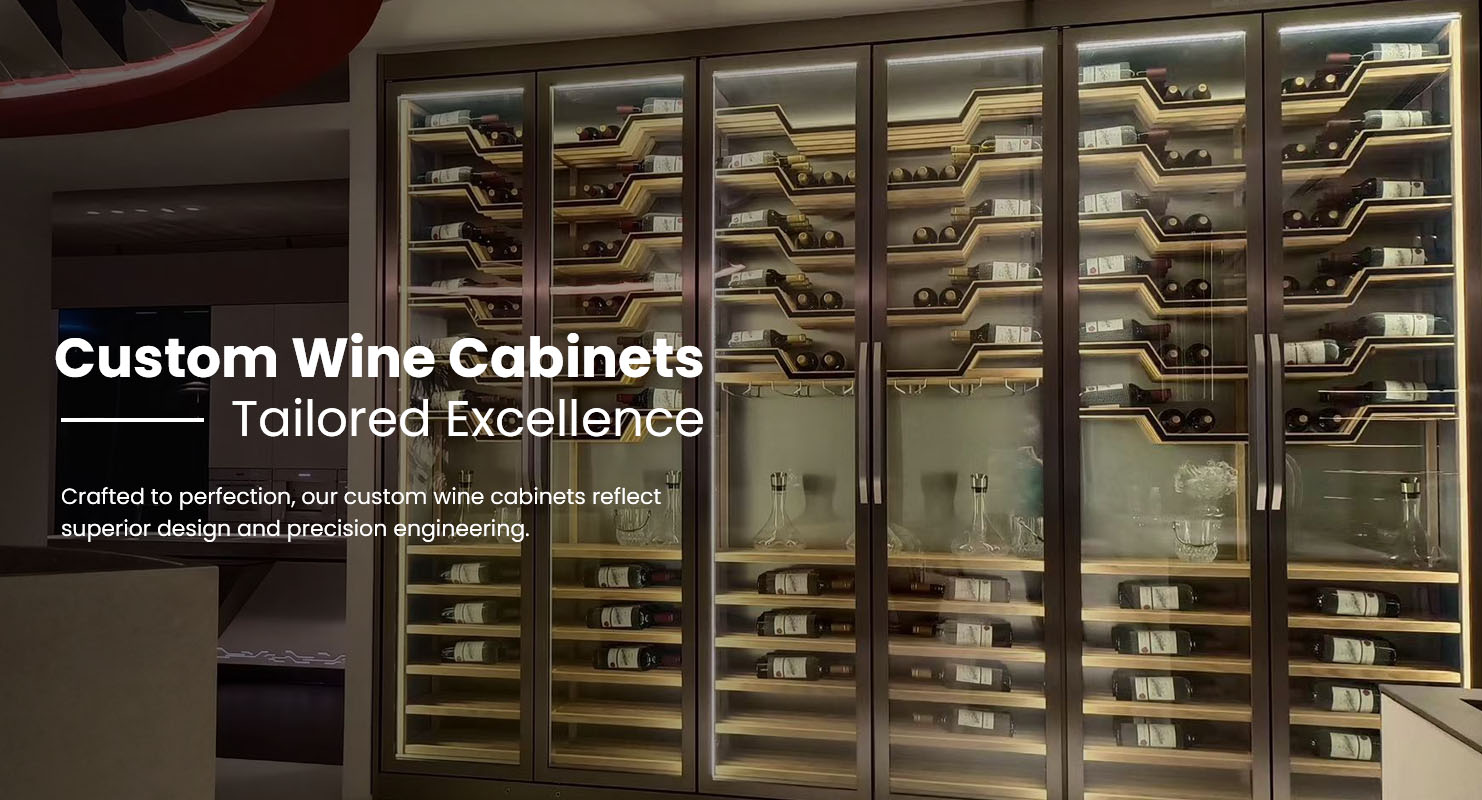Does A Wine Cooler Run All The Time
No — a Wine Cooler does not run continuously. Like a refrigerator, it cycles on and off automatically to maintain your chosen temperature range. The compressor or thermoelectric cooling system activates when the internal temperature rises above the set level, then shuts off once the correct temperature is restored.
1. How a Wine Cooler Works
A wine cooler maintains a stable storage temperature by continuously monitoring the air inside the cabinet.
When the temperature increases (for example, when you open the door or during a warm day), the cooler’s thermostat detects the change and triggers its cooling mechanism. Once the temperature returns to the desired level, the system automatically shuts off.
This cycling process ensures efficient cooling without overworking the unit or freezing the wine.
2. Cooling Cycles Explained
Wine coolers operate in cycles that typically last 10–20 minutes on, 20–30 minutes off, depending on:
Ambient room temperature
Number of bottles inside
How often the door is opened
Set temperature range
Insulation and cooling technology
So while your cooler is always on in the sense that it’s powered and monitoring temperature, the compressor or fan is not running 24/7.
3. Factors That Affect How Often It Runs
1. Room Temperature
If your cooler is placed in a hot area (above 30°C / 86°F), the compressor will need to run more often to compensate for heat.
Ideal ambient range: 10–27°C (50–80°F).
2. Door Openings
Every time you open the door, warm air enters and triggers a cooling cycle. Keeping the door closed helps maintain stability.
3. Bottle Load
A fuller wine cooler holds cold better because wine acts as a thermal mass. Underloaded units may cycle more frequently.
4. Placement and Ventilation
Coolers installed too close to walls or heat sources (like ovens or direct sunlight) can overheat and cycle continuously. Leave at least 5–10 cm (2–4 inches) of space around for ventilation.
5. Temperature Setting
The lower you set the temperature, the more frequently the compressor will run. Choose an appropriate level for your wines:
Red wine: 12–18°C (54–65°F)
White wine: 6–12°C (43–54°F)
Sparkling wine: 4–8°C (39–46°F)
4. Signs That Your Wine Cooler Is Running Too Often
While short cooling cycles are normal, constant operation can indicate an issue. Look for:
Continuous humming noise (compressor never turns off)
Frost buildup inside the cooler
Fluctuating or unstable temperature readings
Warm air around the vent or motor housing
If this happens, check for:
A dirty condenser coil or blocked ventilation
Leaking door gasket (warm air entering)
Incorrect temperature setting
Faulty thermostat or sensor
Cleaning or reseating the gasket often solves the problem.
5. How Winton Wine Coolers Optimize Energy Use
Winton Wine Cooler models are built with smart temperature management systems that minimize unnecessary cycling while preserving ideal wine conditions.
Key Efficiency Features:
Digital thermostat sensors — Monitor temperature precisely and reduce overcooling.
Low-vibration compressors — Maintain stable temperatures without disturbing sediment.
Dual-zone technology — Separate temperature zones for red and white wines, managed independently.
Thermoelectric systems (in select models) — Ultra-quiet cooling without compressors.
Eco-mode operation — Adjusts fan and compressor speeds automatically based on load and room temperature.
These innovations allow Winton units to maintain constant internal stability while the compressor runs only as needed, saving both energy and wear.
6. Tips to Improve Efficiency and Reduce Run Time
| Tip | Effect |
|---|---|
| Keep cooler 50–80°F (10–27°C) ambient | Reduces compressor load |
| Fill at least two-thirds full | Increases thermal stability |
| Avoid frequent door openings | Minimizes warm-air entry |
| Clean vents and coils regularly | Prevents overheating |
| Ensure proper clearance from walls | Improves airflow |
| Check door seal monthly | Maintains internal insulation |
Following these practices keeps your wine cooler quiet, stable, and energy-efficient.
7. Summary
A wine cooler does not run all the time — it cycles on and off to maintain your chosen temperature range. Continuous operation usually signals improper ventilation, high ambient heat, or door-seal problems.
Winton Wine Coolers, equipped with smart sensors, quiet compressors, and dual-zone precision control, are engineered to maintain consistent cooling with minimal energy use and maximum wine preservation.
Efficient cooling. Silent performance. Perfect preservation — that’s Winton.
Previous: How Long For Wine Cooler To Get Cold


